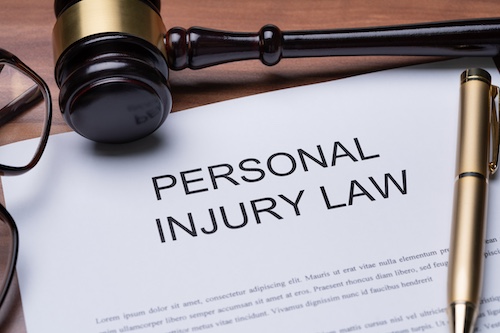- Personal Injury
Leslie has over 3 decades of civil litigation and trial experience for personal injury and family law. She is a member of the State Bar of Georgia litigation and family law sections.
Understand the Legal Deadline Before You Lose Your Right to File
If you were injured due to someone else’s negligence in Georgia, you only have a limited time to file a personal injury claim. The Georgia personal injury statute of limitations sets strict deadlines for taking legal action, and missing those deadlines can permanently block your right to recover damages. Whether your case involves a car accident, medical malpractice, or wrongful death, knowing the correct time limits is critical.
In this blog, you will learn how the Georgia personal injury statute of limitations works, what deadlines apply to different types of claims, what exceptions may extend your time to file, and how working with an experienced Fayetteville personal injury lawyer can help you protect your legal rights and recover the compensation you deserve.
What Is the Georgia Personal Injury Statute of Limitations?
Understanding the statute of limitations is critical if you plan to file a personal injury claim in Georgia. Missing the legal deadline can prevent you from recovering compensation, no matter how strong your case is.
Definition of a Statute of Limitations
The statute of limitations is the legal time limit you have to file a lawsuit. In Georgia, the deadline to file most personal injury lawsuits is set by O.C.G.A. § 9-3-33. This statute gives injured parties two years from the date of the injury to take legal action in civil court.
This time limit applies to most personal injury cases, including car accidents, premises liability, wrongful death, and medical malpractice. Filing after the deadline usually means your case will be dismissed, and you lose the chance to recover damages.
When the Clock Starts
For most claims, the statute begins on the date the accident occurred or when the injury was discovered. This is known as when the legal action “accrues.” For example, in a car accident case, the two-year period typically starts on the day of the crash. In medical malpractice actions, the time period may start later if the injury was not immediately known.
Understanding exactly when your case began is important. A Fayetteville personal injury lawyer can help identify the correct start date based on the details of your case.
Why This Time Limit Matters
Georgia law does not give extensions unless specific exceptions apply. If you do not file your personal injury claim within two years, the court will usually bar your lawsuit. That means you will not be able to recover compensation for medical expenses, lost wages, emotional distress, or property damage caused by the responsible party.
Types of Personal Injury Cases and Their Specific Time Limits
Different types of personal injury cases in Georgia follow different legal deadlines. Knowing which time limit applies to your claim is key to protecting your right to file a lawsuit.
Car Accidents and Premises Liability
Most personal injury claims involving auto accidents or unsafe property conditions must be filed within two years. The two-year statute of limitations begins on the date the injury occurred. If the accident involved a government agency, a shorter notice period applies.
These types of claims may involve medical expenses, lost wages, pain and suffering, and property damage. If you are the injured party, you must act quickly. A Fayetteville personal injury lawyer can help ensure that you do not miss important deadlines.
Medical Malpractice Actions
Claims involving medical negligence follow a different rule. Under Georgia law, you have two years from the date of the injury or from the date you discovered the harm to file your lawsuit. However, Georgia law also sets a five-year statute of repose. This means no claim can be filed more than five years after the negligent act, even if the injury was not discovered right away.
These deadlines apply to errors made by doctors, nurses, or other healthcare providers. Medical malpractice cases often require expert testimony and detailed medical records. Legal action should start as soon as possible.
Wrongful Death Claims
Georgia law treats wrongful death cases as separate from other personal injury claims. The two-year time limit still applies, but it begins on the date of death, not the date of injury.
Family members such as a spouse, child, or the representative of the estate may file the claim. A Fayetteville personal injury attorney can explain who has the legal right to bring this type of civil lawsuit and how damages may be recovered.
Claims Involving Government Entities
When a government agency is involved, the law sets shorter deadlines. Before you can file a lawsuit, you must send an ante litem notice. This must be filed within six months for city or municipal claims, and within one year for state or county claims. These rules are set by O.C.G.A. § 36-33-5 and O.C.G.A. § 50-21-26.
After the notice is sent, you still must file the lawsuit within the standard statute of limitations. Legal claims against government entities are subject to more strict procedures. Do not delay if your injury involves public property or a government employee.
Exceptions and Tolling Provisions
Some personal injury claims in Georgia may qualify for extra time under specific legal exceptions. These tolling provisions pause or extend the statute of limitations under limited circumstances.
Claims Involving Minors or Legally Incompetent Persons
Georgia law allows extra time for injured persons who are minors or mentally incompetent at the time of the injury. In these cases, the statute of limitations does not start until the person turns 18 or is declared competent. This delay gives the injured person time to file a personal injury lawsuit when they are legally able to do so.
This exception applies to most personal injury cases, including auto accidents and medical negligence. Parents or guardians may still be able to take legal action on the injured person’s behalf.
Fraud or Concealment by the Responsible Party
If the at-fault party hides the facts of the injury or misleads the injured person, the statute of limitations may be paused. This is called tolling for fraud. Georgia law allows the time limit to stop running until the injured person learns, or should have learned, about the harm and the party’s negligence.
This rule often applies in product liability or medical malpractice claims where the injury was not obvious or information was intentionally withheld. A Fayetteville personal injury attorney can review whether this exception may apply to your case.
Criminal Cases or Ongoing Investigations
If the injury is related to a crime, Georgia law may toll the statute of limitations while the criminal case is active. This applies in certain situations involving assault, homicide, or other serious offenses. Civil cases that rely on the outcome of a criminal case may benefit from this delay.
This provision can also affect wrongful death claims where criminal charges are pending. Once the investigation ends or the criminal case is resolved, the civil claim must be filed within the allowed time.
Other Rare Exceptions
Some rare conditions can pause the statute of limitations. These may include military service or certain actions taken by a government entity. While these are less common, they still affect your legal rights and the time limits to file a civil lawsuit.
Consequences of Missing the Deadline
Failing to file a personal injury claim within Georgia’s legal time limits has serious effects. Missing the statute of limitations usually ends your right to recover compensation.
Loss of Legal Right to Sue
If you miss the deadline set by the Georgia personal injury statute of limitations, the court will likely dismiss your case. This applies even if the other party was clearly at fault. Once the time period expires, you cannot pursue legal action, file a civil lawsuit, or demand compensation.
The law does not allow exceptions for delays caused by waiting on insurance settlements or ongoing medical care. You must file your civil claim within the allowed window or risk losing all legal rights.
No Compensation for Damages
In most personal injury cases, missing the deadline also means you give up the chance to recover damages. This includes medical expenses, lost wages, property damage, and emotional distress. Even strong claims supported by clear evidence will not succeed if they are filed too late.
If the injured party was relying on a future payout to cover ongoing costs, the financial impact can be severe. Deadlines under Georgia law are final unless a valid tolling rule applies.
Impact on Insurance and Settlement
Insurance companies know the law. If the statute of limitations has passed, they are not required to settle or pay out on personal injury claims. You lose all leverage in negotiations once the right to sue is gone.
A Fayetteville personal injury attorney can help ensure that all legal claims are filed within the correct time period. Acting quickly protects your right to recover compensation and avoid delays that can cost you your case.
Dismissal of the Case in Civil Court
If you file a personal injury lawsuit after the deadline, the court will likely dismiss it with prejudice. This means the case is closed permanently, and you cannot refile. Courts enforce these rules strictly, even if the delay was small.
Contact an Experienced Fayetteville Personal Injury Lawyer Today!
If you have been injured and need to file a personal injury claim, do not wait until it is too late. Reach out to our team at Wade Law Office today. An experienced Fayetteville personal injury lawyer can review your case, explain the time limits under Georgia law, and take action to protect your right to recover compensation.
Contact us at 770-282-1188 for a free case consultation today!












